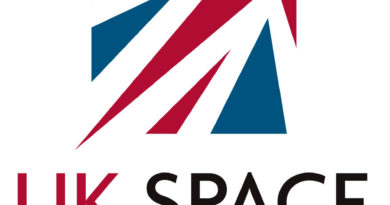HISTORIC PRESS RELEASE : Goodison calls for a boost for gifts to museums [January 2004]
The press release issued by HM Treasury on 15 January 2004.
Sir Nicholas Goodison today published his review of regional and national museums’ and libraries’ ability to compete in the market-place for works of art and culture and called for a boost to private giving and a new emphasis on collections and curation.
Sir Nicholas said:
“We have a problem that we must solve. Museums, galleries and libraries are records of our history. All over the country they offer amazing opportunities for learning and enjoyment. In recent years it has been harder and harder for them to compete to buy essential works of art and culture. The most expensive objects, some of them likely to be exported, are often out of reach.
“We must find ways of encouraging more gifts from private owners and donors. In the United States private giving to public collections, with some encouragement from tax reliefs, is part of the country’s culture. I want more people in the U.K. to discover the pleasure of giving in this way.”
In his review, entitled ‘Securing the Best for our Museums: Private Giving and Government Support’ , which was commissioned by HM Treasury, Sir Nicholas argues the cultural and economic case for new acquisitions by museums and other public collections. He discusses the threat of continuing sales of important objects from private collections and their possible export, the sources of public funding available to museums, the need for a new look at the care of collections, and the difficulties that museums have in providing money for acquisitions. He analyses the various fiscal measures that help to keep important objects publicly accessible in private collections and that encourage private owners to sell to public collections rather than on the open market. He makes a number of recommendations to secure public access to works.
Sir Nicholas places particular emphasis on the strengthening of regional collections and their curatorial skills, and increasing the availability of important cultural objects in the regions, in order to widen people’s opportunities for enjoyment and learning.
Sir Nicholas added:
“A museum’s acquisition policy should reflect a well thought out policy of strengthening its collection to ensure excellence and to inspire its local community and its visitors.”
His chief recommendations are:
- New tax reliefs to tempt owners to donate works of pre-eminent importance to public collections during their lifetimes. If adopted, a donor would be able to set the gross value of the object against income before the assessment of income tax, and any capital taxes due on sale would be eliminated. The donor would be able to spread the income tax saving over a number of years.
- Changes to the Acceptance in Lieu system that will (1) enable executors to offer objects of pre-eminent importance against not just inheritance tax but all forms of tax liability due on a deceased estate, and (2) enable owners of objects, during their lifetimes, to arrange offers in lieu of tax liabilities following their deaths.
- A new one-stop shop for museums and owners to get impartial advice and guidance on buying and selling works of art. Resource (the Council for Museums, Archives and Libraries) could house an executive function to deal with most of the programmes to do with the retention of works of art and other cultural objects. This will enable Resource to provide a much needed professional advice and guidance service to owners and their representatives, and to strengthen its advice and guidance services to museums, in particular regional and smaller museums who don’t have specialised knowledge in this area. It will bring greater consistency into the present varied and (to owners) confusing programmes. The service would include a comprehensive and clear written guide to the many options available to the owner of an object, which would be distributed to owners, professional advisers and museums.
- Raising the annual grant to the National Heritage Memorial Fund to at least £20million.



